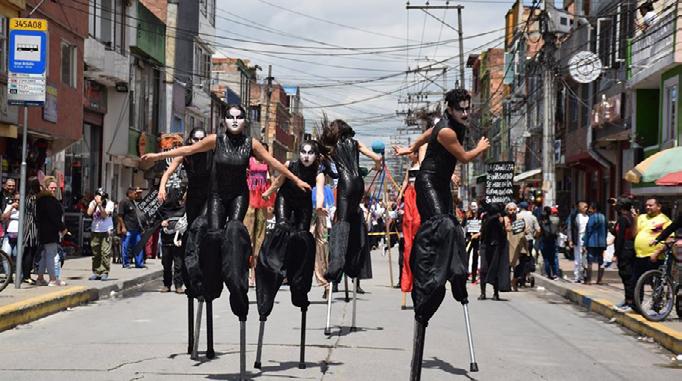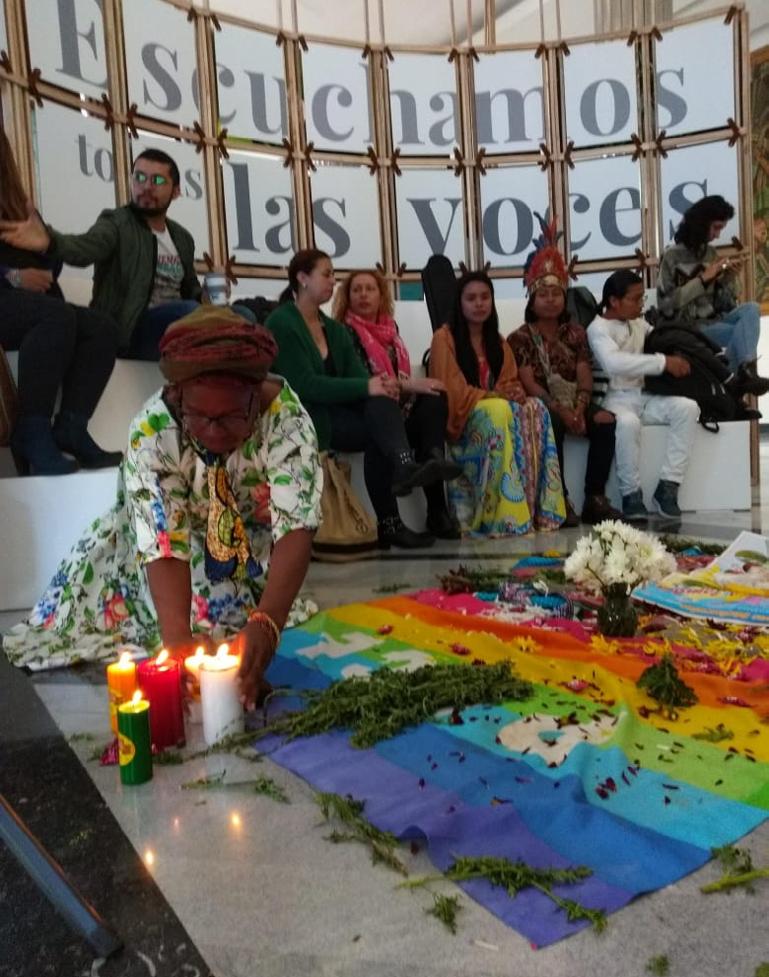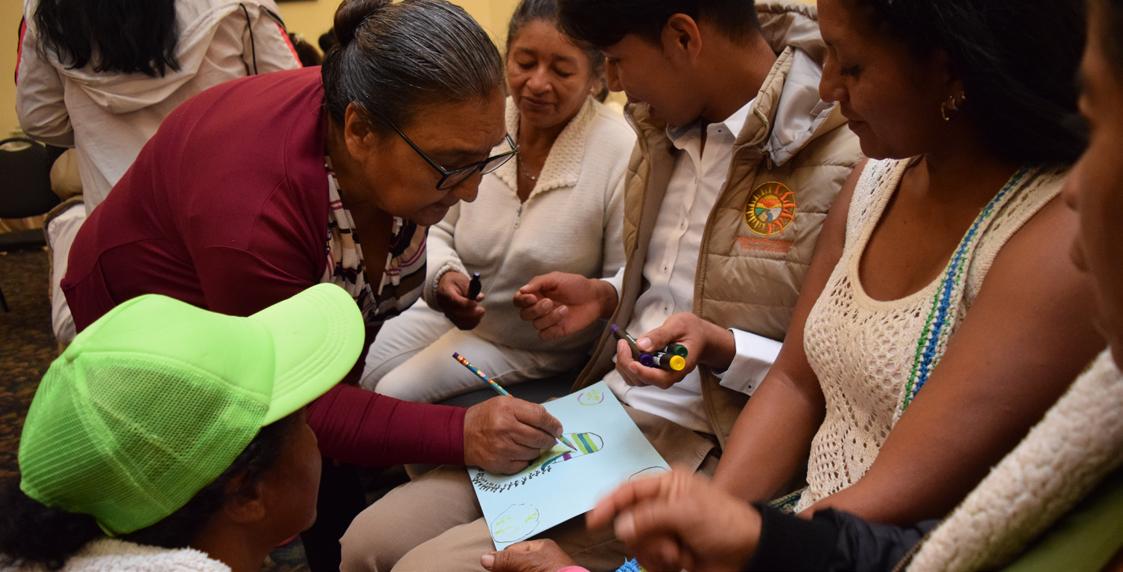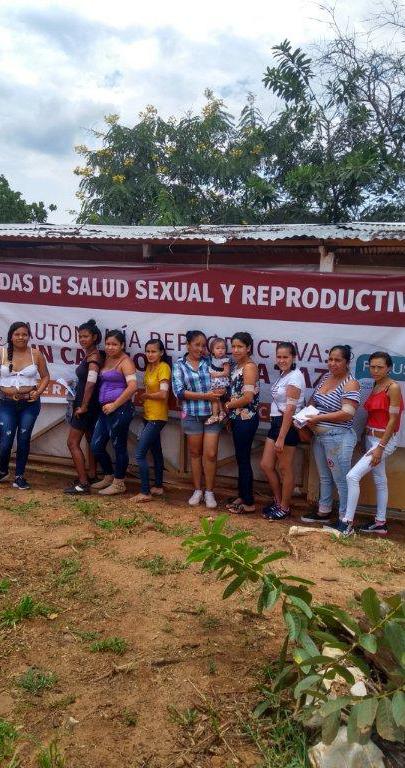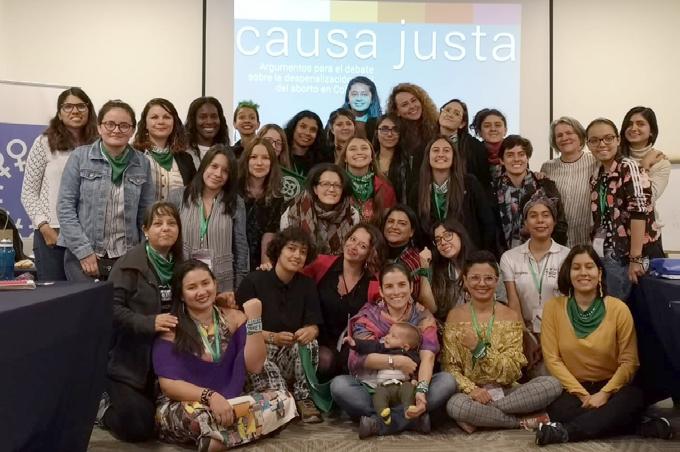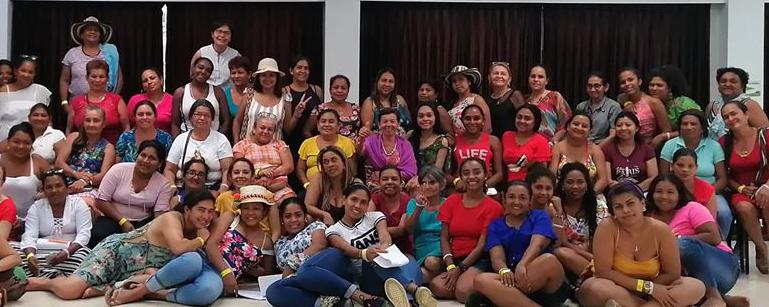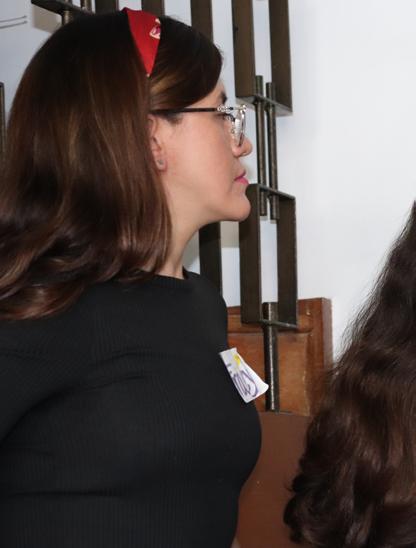
4 minute read
Women’s Political Participation
TEXT: YENNY LEGUIZAMÓN ORJUELA, FOKUS in Colombia Communications Officer
WOMEN’S POLITICAL PARTICIPATION March for the Lives of Social Leaders, Bogotá, July 26, 2019. PHOTO : Yenny Leguizamón Orjuela.
Women’s political participation in Colombia faces two major obstacles: first, the murder of social leaders and, second, lowlevel citizen support for women candidates running for elected positions, in addition to the non-compliance of the Quotas Law for political parties and movements, as was demonstrated in the last local elections held in 2019.
T
o speak of political participation is to speak of citizens strengthening democracy by influencing the course that the society they live in should take. It is for that reason that guaranteeing women’s participation is of vital importance to strengthening the political initiatives that contribute to peacebuilding. This principle is reflected in point 2 of the Final Agreement, signed between the government and the former FARC guerrillas, which includes political participation measures “that not only look to guarantee women’s right to participation and to promote and strengthen their role in political and social representation spaces, but also proposes the creation of full guarantees to participate in politics and the opposition, and the creation of scenarios that promote social harmony, tolerance, and non-stigmatization.” 1
The murder of social leaders puts at risk this point of the agreement, which is fundamental to overcome one of the structural causes of political violence in Colombia—exclusion from political participation. After the agreement’s signature, the murder of social leaders increased. For example, in the first semester of 2019, it increased by 3%, in comparison with the same period in 2018. 2 Between November 24, 2016 and July 2019, 80 leaders were assassinated. 3 In the first months of 2020, four women leaders and 24 men leaders have been assassinated. 4 In
1 Third report to verify the implementation of the Gender Approach in the Final Peace Agreement in Colombia, executed by International Verifiers, Felipe González and Jose Mujica (A.F. 6.3.2)
2 La cuota de lideresas sociales agredidas en Colombia, Newspaper el Espectador, consulted January 30 https://www.elespectador.com/ colombia2020/pais/la-cuota-de-lideresassociales-agredidas-en-colombia-articulo-885010
3 Database made by the Movement, Las Mujeres Contamos, using several human rights sources.
4 LÍDERES Y LIDERESAS SOCIALES Y DEFENSORES DE DERECHOS HUMANOS ASESINADOS EN 2020* http://www.indepaz. org.co/paz-al-liderazgo-social/
Colombia there are not full guarantees for the participation of women and men social leaders.
With the murder of women leaders, society loses. The time and effort required for a woman to construct her leadership role is incalculable, even more so in a society like Colombia’s, which implies more than just breaking down the patriarchal patterns that limit the development of these leadership roles.
The murder of women social leaders is additionally characterized by attacks suffered against their bodies and sexuality, 5 which is understood as an exercise in punishing their leadership. This can immobilize other women who want to assume a leadership role in their areas of interest, directly affecting women’s right to participation.
In 2019, the first local elections were held since the signature of the peace agreement with new topics of interest emerging, such as corruption, which took first place in the country’s political and media agenda. This subject determined the results of the last elections, leading mainly to the election of female and male candidates who proposed the transparent management of public resources.
Of course, the results still demonstrate that the political castes that move within the framework of corruption maintain their political power, but it has also opened up the possibility of supporting other political proposals.
Another indicator from the elections is that the political participation of Colombian women and men has increased since the anti-corruption
5 https://www.verificacion.cerac.org.co/wpcontent/uploads/2019/07/Tercer-Informede-Implementaci%C3%B3n-del-Enfoque-deG%C3%A9nero-STCVI.pdf
consultation vote in 2018, achieving a 55% participation rate. Different political analysts see a positive change in the anti-corruption vote and the October 2019 elections, which is most evident in the larger cities.
Nevertheless, the results in relation to women are not encouraging, even though three important positions— such as Mayor of Bogotá, Mayor of Santa Marta, and Governor of the Atlántico department—were won by women, it is also true that, in general, there were setbacks in relation to women’s participation, which was already low. See graph 1.
Of the women who reached these positions of representation, to what extent have they included a women’s agenda? Being a woman is not a guarantee of government plans with a gender perspective. These elections demonstrated progress through the Estamos Listas (Women are Ready) women’s political movement, which was born as a political proposal in the city of Medellín after the 2016 loss of the plebiscite vote, obtaining 28,078 votes and a seat on the Council of Medellín. Of the three most important positions in which women were elected, two have points in their government agendas regarding gender. Claudia López, Mayor of Bogotá, established an alliance with the women’s movement and her government program includes issues such as: strategies to eliminate violence against women, the care economy, and participatory budgets with a gender perspective. Virna Johnson Salcedo, Mayor of Santa Marta, filed a proposal before the city’s council to create the Women’s Office, and Elsa Noguera, the new Governor of Atlántico, has incorporated, as concerns inclusion, the empowerment of women and girls.
Guaranteeing women’s participation is essential to consolidate peace. This is a challenge that once again is fundamental after the signature of the peace agreement, because the strengthening of illegal armed groups in coordination with drug trafficking rings, excessive exploitation of the territories, and corruption means that protecting these leaders is fundamental to guarantee the construction of true peace for all Colombians. FM
Graph 1. 2019 Elections 6
117.822 43.824
Registered women
8.764
Elected women
Total Registered Candidates

